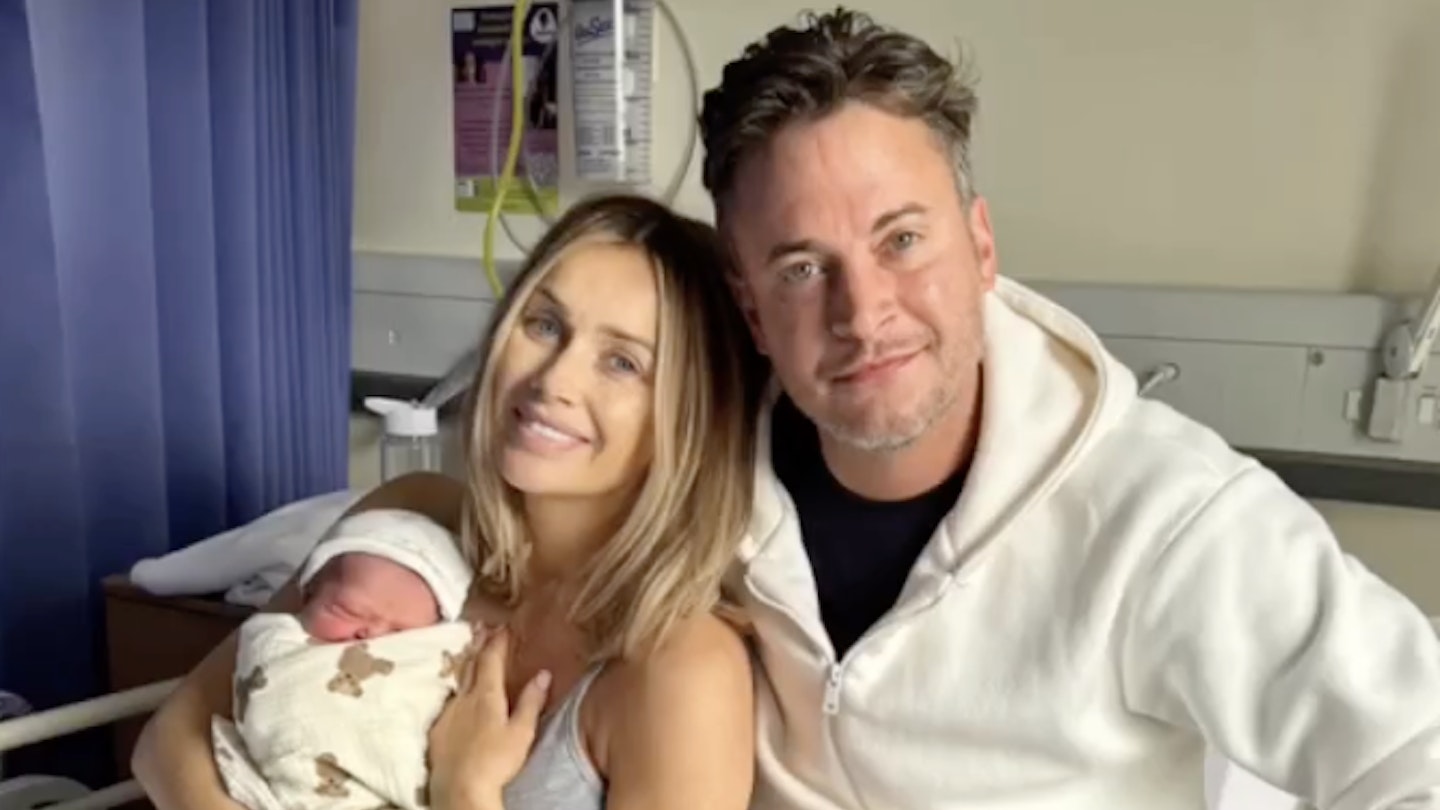Former Love Islander, Laura Anderson has opened up to her followers about the trauma of her daughter Bonnie’s birth in an honest video, where she candidly describes the ‘horrendous’ experience.
In the Instagram clip posted this week, she explains how she experienced a vaginal tear and a postpartum haemorrhage resulting in a loss of 1.6 litres of blood.
Laura also describes how she underwent 'four sweeps' – a procedure to initiate labour – followed by ‘horrendous contractions’ after receiving a non-hormonal cervical balloon to induce labour. ‘We kept going into hospital and it was just exhausting and I thought 'God I've still got the full labour to go,’” she told her followers.
Laura, 34, announced she was pregnant with her then-partner Gary Lucy, 41, back in February this year. They confirmed they had split up shortly afterwards, but that they planned to raise the child together amicably.
In the video, Laura goes on to describe feeling like no one was taking her seriously in the hospital when she was one centimetre dilated. ‘I found it mentally quite torturous because I felt it was going to be so long with no pain relief,' she says. On reaching the delivery room, Laura started bleeding and went from four to nine centimetres dilated within hours, relying on gas and air for relief.
‘When I was at 9cm I said, ‘f**k this s**t give me the epidural I can’t do this’ and then they were like ‘it’s too late, we are going to give you something else,’” she said, adding that she felt as if the ‘gods were with me’ when she was finally administered an epidural. ‘As soon as I stopped needing the gas and air I was like “Hallelujah,”’ she continued. ‘I even had a nap, they scheduled me a nap and said, “at half five we will begin pushing.”’
Bonnie was welcomed into the world after three pushes, but Laura’s ordeal was not over yet. She suffered a second-degree tear which needed stitches, and five hours later she experienced an ‘awful’ haemorrhage which left her feeling faint. ‘I just stayed calm because I thought, ‘I’ve got everybody around me that needs to be here doing everything they can’ so I am a bit better in emergencies like that than like smaller things, if I stub my toe it’s the end of the world,'" she said.
Despite the trauma of Bonnie's birth, Laura ended her video by explaining it hasn’t put her off having more children in the future. ‘Obviously it’s all worth it and I would do it all again,’ she said, adding ‘But I do think don’t be the hero – get the epidural at 4cm. You’ll just have a nice time.'
However, Laura’s video has attracted comments from people online who claim that her experiences aren’t as 'bad' as she thinks. One user commented on an online article ‘You and thousands of other women everyday who just get on with it with no fuss or the need to dramatise it nationally Laura. Just be grateful for and focus on your beautiful baby instead.’ This was echoed by a commenter on another article, who wrote ‘Oh give over. My wife lost 2L and didn't go whining to the media.’ There have also been suggestions that Laura isn't the only celebrity to experience a traumatic birth.
Why has a woman bravely sharing details of her labour generated this discourse online? Birth stories are not the place for one-upmanship and Laura's experience will feel relatable to many new mothers. A poll released this week by Mumsnet found that 79% of those surveyed had experienced birth trauma. Among those who had experienced physical, emotional or psychological birth trauma, 44% said healthcare professionals used language which implied they were 'a failure or to blame' for the experience.
MP Theo Clarke, who experienced a traumatic birth herself, called the results of the poll ‘deeply upsetting’ adding that ‘more compassion, education and better after-care for mothers who suffer birth trauma are desperately needed.’
Laura choosing to talk openly about her birth experience doesn’t make anyone else’s less painful or traumatic. Instead, it opens up the conversation around birth trauma in a way that can only inspire positive change in the future. Surely, she should be applauded for this.
